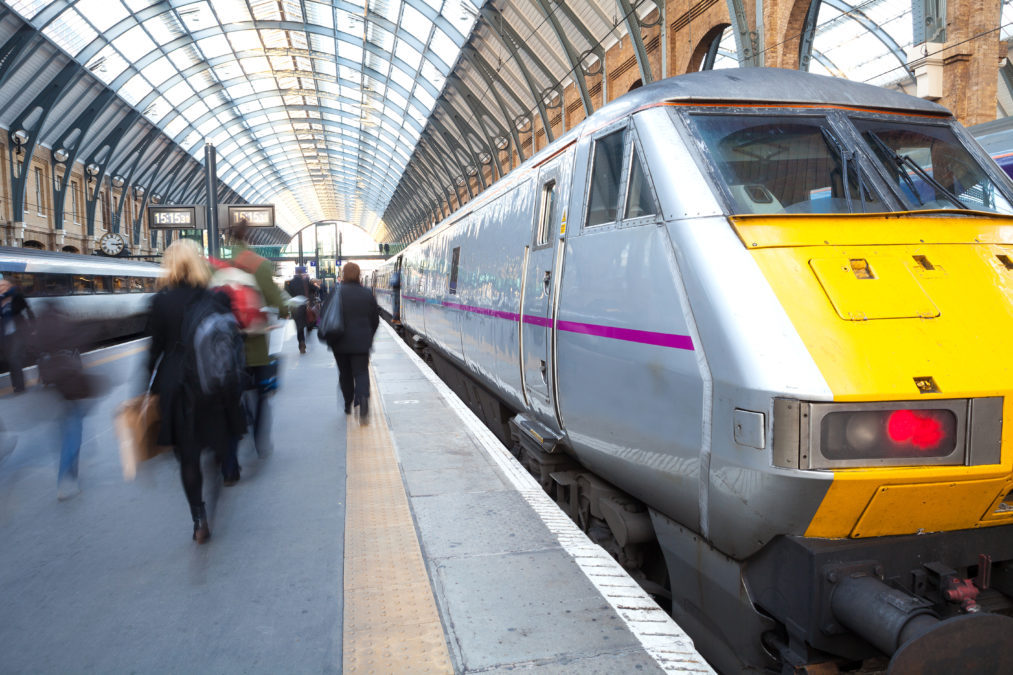The travel sector, like any other, is being disrupted by new technologies and an increasing number of start-ups offering more personalised, consumer-friendly offerings.
Trainline, Europe’s leading train and coach app, sells tickets to customers in 173 countries and has more than 70 million visitors every month. It is not waiting around to find out what happens to those that don’t invest and innovate.
“We’re committed to using our tech expertise and data smarts to create new tools and an experience that hugely benefits every customer,”explained Mark Holt, CTO of Trainline, during our weekly series – CTO’s on our Doorstep.
>See also: Can artificial intelligence pave the way for the future of travel?
“Advances in the world of AI and big data are driving innovations forward,” and increasing competition.
“However, global industry shifts have an effect too [on the disrupted travel industry]. For example, the EU is opening rail competition across Europe next year, which will help to drive innovation in other areas. Likewise, increased access to real-time travel data – such as that widely shared by Transport for London – will help improve the customer experience even further.”

AI leads the way
Voice technology, enabled by artificial intelligence, is here to stay, according to Holt. He predicts that with the advent of personal assistants, like Alexa and Google Home, consumers will become more and more comfortable talking to digital assistants and AIs in their daily lives.
>See also: AI solutions required for fast-paced application development?
“For the travel tech industry, that means AIs trained with huge amounts of data, to provide bespoke contextual information for individuals,” explained Holt. “This will continually be combined with smart and seamless ticketing, particularly for multi-modal journeys – those using train and coach or other modes of transport in one trip.”

Instead of an often frustrating task of looking up tickets, times and deals, eventually “an AI assistant will discover the cheapest and most convenient end-to-end journey for you, book it and provide you with a hassle-free ticket to get you from A to B with minimal input from you,” said Holt.
Getting on the right track
So, what is Trainline doing to stay ahead of its competitors, from both a technical and a business perspective?
“We recently launched the UK’s first ever train ticket price prediction tool, which predicts when advance fares are likely to increase,” answered Holt. “Since launching the feature, we have seen two million customers engaging with this product, resulting in a total saving of more than £9 million.”
>See also: Technology is elevating the travel industry to new heights
“We’re only able to do this because 127,000 people travel every day using a ticket bought through Trainline. This provides a vast trove of customer & rail data that we’re able to leverage to train our AI. If you don’t have traffic at this scale, then your predictions will necessarily be significantly less accurate.”
“To ensure that we continue to innovate and disrupt ourselves, we’re constantly reorganising our teams to support our growth and drive it even faster. A good example of this is how we’ve iterated towards smaller-and-smaller cross-functional teams; each tasked with a key business mission. We now have ‘squads’ with two-four developers, each of which has been set-up to act as individual start-ups within the larger company, with high levels of empowerment.”
Nominations are now open for the Women in IT Awards Ireland and Women in IT Awards Silicon Valley. Nominate yourself, a colleague or someone in your network now! The Women in IT Awards Series – organised by Information Age – aims to tackle this issue and redress the gender imbalance, by showcasing the achievements of women in the sector and identifying new role models







